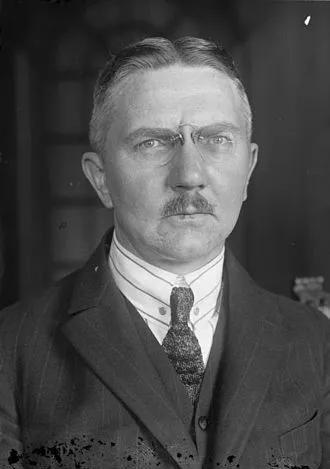The World Economic Depression of 1929 completely destroyed the German economy, and the unemployment of 6 million people meant that million families lost their stable economic resources. Germany did not have a large enough market to slowly regulate, such as britain and France, nor did it have the sufficient funds of the United States to help itself through large-scale infrastructure, and it could neither sell nor borrow money, and the liberal economic policy implemented by the Weimar government could do nothing about it.
"It is necessary for the state to intervene in the economy to save Germany" Former German central bank governor Shacht, who resigned for many years, firmly told a mustache: "Germany's economic recovery needs international capital transfusions, and international financial capital is now seriously injured, and when they can lend money, we will become the second Soviet Union." At that time, the Number of Seats of the Communist Party of Germany in the German Parliament had reached 17%, making it the second largest party after the Nazi Party. The class antagonism caused by the economic crisis and the perfect demonstration of the Soviet planned economy against the economic crisis have convinced more and more Germans that by confiscating the assets of capitalists and Junker landlords, taking the socialist road, and implementing a planned economy, Germany can certainly quickly embark on the road to rejuvenation.

Schacht took a deep breath of his cigarette and looked thoughtfully at the mustache in front of him, who also quietly admired the economic genius, and the "government intervention in the economy" that kept flashing in his mind made him anxious and uneasy.
"I followed some of your points, you are a strong leader, the government's policy of intervention in the economy needs such an iron fist leader"
Since then, Hitler has had his own economic policy, no longer a talk show actor and organizer who only organizes a mouth-to-mouth parade, but really attracts the attention of the capitalist chaebols.
Under Schacht's operation, Hitler began to frequently lobby German industrial and financial giants to promote his political ideas and economic policies. Mold yourself into loyal comrades-in-arms of the capitalist chaebols, fighters against the Communist Party. "The Communist Party is in power, it will destroy and destroy all the property of the capitalists" Of course, the capitalists are not talk show audiences drinking tea and bumping melon seeds, and without some real things, they will not give you real money and silver to stand on the platform, and the moustache will not rush to come up with a thick economic reform plan.
In addition to the conventional confiscation of Jewish capitalists to transfer capital to social contradictions, the fight against trade unions, the issuance of public bonds, and the operation of state-owned assets, the three most important points:
I. Rearmament and infrastructure will become the locomotive of economic recovery. Under the premise that exports are weak and their own market volume is insufficient, armaments and infrastructure will consume a large number of industrial products to stimulate economic recovery and worker employment.
Expand monopoly organizations to accelerate production and capital concentration. By forcing cartelization and eliminating small and medium-sized enterprises, monopoly capital is formed in various industries and free competition is eliminated.
The government has comprehensively intervened in the national economy and implemented the national socialist economic policy. Economic regulation bodies were established on the basis of monopoly organizations, which were jointly managed by the monopoly oligarchs and Nazi Party members. The regulatory bodies had the power of government agencies and were under the jurisdiction of the All-German Economic Institute under the Reich Ministry of Economy. Formulate national economic policies and decrees in accordance with the principle of militarization, and intervene and regulate the national economy. In this system, monopoly capital and the state achieved a high degree of integration.
For example, after the formal implementation of this policy, 5 of the 17 members of the All-German Economic Academy were Nazi members. Of the 16 members of the State Railway Management Committee, 8 were capitalists and 8 Were Nazi bureaucrats. Half of the 16-member management committee of the National Bank consisted of people like Krupp and high-ranking Nazi officials. After the Nazis came to power, they forced some corporate banks to reorganize their upper leadership, purged anti-Nazis and Jews, and a group of Nazi leaders entered the boards of directors or chairmen of large companies and large banks.
Capitalists give up some of the decision-making power of enterprises, in exchange for monopoly positions, deeply bound to the state apparatus, and become red-top businessmen themselves can formulate production plans.
No capitalist oligarch will be able to hold on to this set of economic policy combinations, and if it does not turn a corner once, then do it again. It's better than being confiscated by the Communists, not to mention that if Nazi Germany thrives, it can also make a lot of money.
As a result, the oligarchs of capital stood behind Hitler, and beside Hitler, the official god of wealth, Schacht.